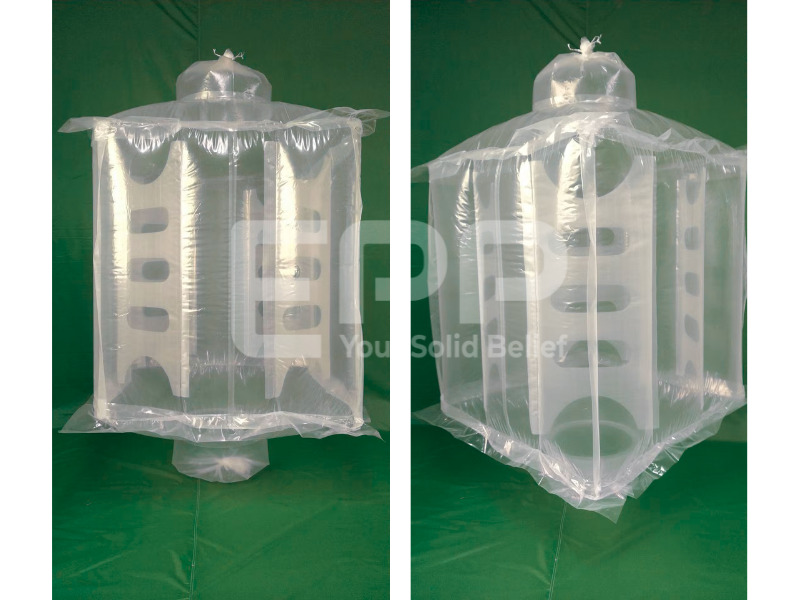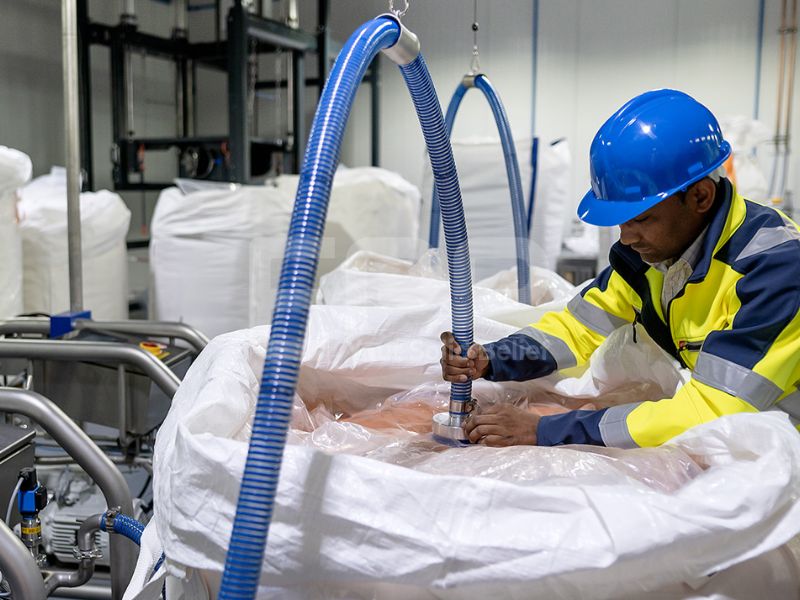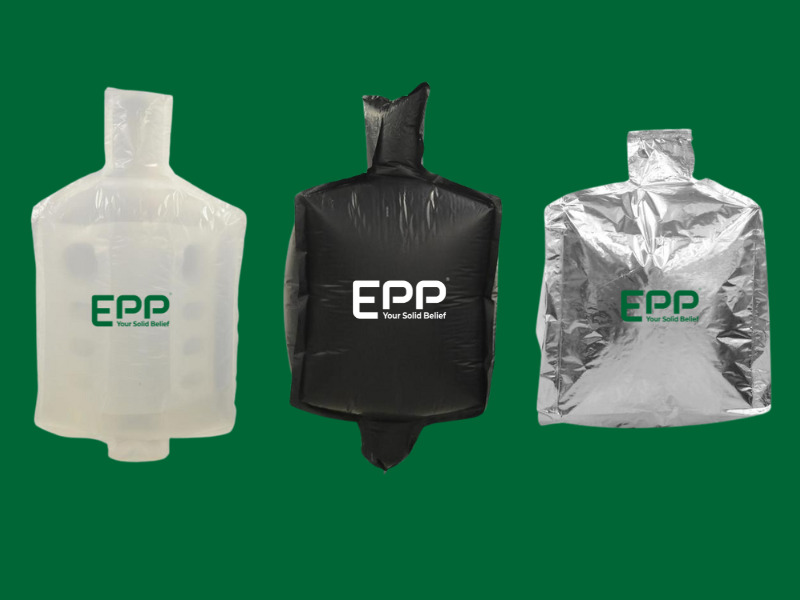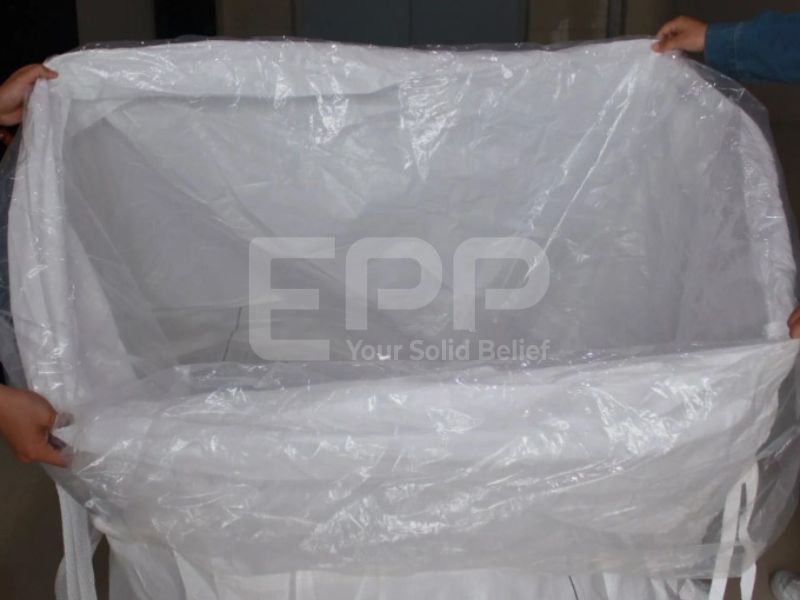PE liners are essential components in bulk packaging, designed to enhance the functionality and safety of bulk bags. Constructed from polyethylene, these liners provide a protective barrier that improves the quality and integrity of the contents they encase. Understanding when to use FIBC liners can significantly impact the efficiency of your packaging and transportation processes.
What Are PE Liners?

PE liners, or polyethylene liners, are thin sheets made from polyethylene plastic that are used within FIBC bags to provide an additional layer of protection for various materials. These liners can be custom-fitted to different bag sizes and are often used to safeguard products from moisture, contamination, and physical damage during storage and transport. They are particularly useful in industries where product integrity is paramount, such as food, pharmaceuticals, and chemicals.
PE liners can be produced in various thicknesses and grades, allowing them to cater to specific requirements based on the nature of the products they protect. Their versatility and effectiveness make them a popular choice in bulk packaging solutions across multiple sectors.
When Should You Use PE Liners in Bulk Bags?
Understanding when to utilize PE liners in bulk bags is crucial for ensuring product safety and quality. Here are some key scenarios:
For Moisture-Sensitive Products
Moisture can be detrimental to many products, leading to spoilage, clumping, or degradation. For moisture-sensitive products, such as grains, powdered chemicals, and certain pharmaceuticals, using FIBC liners is essential. The impermeable nature of polyethylene prevents moisture from penetrating the FIBC bag, ensuring that the contents remain dry and stable.
In environments where humidity levels are high or where products are stored for extended periods, PE liners provide an added layer of security. They effectively seal out moisture while allowing for easy loading and unloading of the bulk bags, making them ideal for long-term storage solutions.
For Fine Powders or Flowable Materials

Fine powders and flowable materials, like powders used in food production or construction, can be challenging to package and transport without contamination or spillage. PE liners help mitigate these issues by providing a smooth, clean surface that prevents materials from sticking to the bag’s interior.
Additionally, the use of PE liners in big bags allows for easier discharge of the materials. The slick surface reduces friction, enabling the contents to flow freely during unloading. This is particularly beneficial in industries where efficiency and cleanliness are critical.
For Food-Grade or Pharmaceutical Applications
In food and pharmaceutical industries, product safety and compliance with health regulations are non-negotiable. PE liners are often manufactured to adhere to strict food-grade and pharmaceutical standards, ensuring that they are safe for direct contact with sensitive products.
Using liners in super sacks for food-grade applications protects against contamination and maintains hygiene during transport. For pharmaceuticals, these liners help preserve the integrity of active ingredients, safeguarding against moisture and environmental exposure. Compliance with industry regulations is crucial, and using certified polyethylene liners can help businesses maintain their certification and reputation.
For Chemical or Hazardous Materials
Handling chemicals or hazardous materials requires heightened safety measures. PE liners offer a reliable barrier against spills and leaks, ensuring that the contents remain contained within the bulk bag. This is particularly important for hazardous substances that could pose risks to health and the environment.
Using polyethylene liners in bulk bags for chemicals not only enhances safety but also simplifies the handling process. Many PE liners are designed to be resistant to specific chemicals, providing an additional layer of protection against reactions that could compromise the integrity of the bag or its contents.
For Reusability and Clean Handling
One of the advantages of using PE liners in jumbo bags is their potential for reusability. Many businesses opt for liners that can be cleaned and reused, reducing waste and lowering packaging costs over time. This is especially valuable in industries where bulk materials are frequently transported.
Poly liners also facilitate clean handling of materials. By keeping the bulk bag’s interior clean, they reduce the risk of cross-contamination between different product batches, ensuring that each load maintains its quality. This is particularly critical in industries where product purity is essential.
Types of PE Liners and Their Applications

PE liners come in various types, each suited to specific applications. Understanding these types can help businesses select the right liner for their bulk bags:
- Flat Liners: These are simple polyethylene sheets that can be inserted into fibc bags. They are commonly used for moisture-sensitive products and fine powders.
- Fitted Liners: Designed to conform to the shape of the bulk bag, fitted liners provide a snug fit that minimizes movement and potential damage to the contents. These are ideal for food-grade and pharmaceutical applications.
- Anti-static Liners: For materials that are prone to static electricity, anti-static PE liners help mitigate the risk of static build-up, making them suitable for certain chemicals and powders.
- Co-extruded Liners: These liners combine different types of polyethylene to enhance barrier properties, providing better protection against moisture, chemicals, and oxygen. They are often used in high-value applications, such as pharmaceuticals and specialty chemicals.
Benefits of Using PE Liners in Bulk Packaging

The benefits of incorporating PE liners into bulk packaging are numerous. Here are some of the key advantages:
- Improved Product Integrity: Poly liners provide a protective barrier against moisture, contaminants, and physical damage, ensuring that products remain in optimal condition throughout transport and storage.
- Cost Efficiency: By reducing product spoilage and waste, PE liners can lead to significant cost savings. Their reusability also contributes to lower packaging costs over time.
- Enhanced Safety: Using polyethylene liners, especially for hazardous materials, improves safety during handling and transport, minimizing the risk of spills and contamination.
- Ease of Use: polyethylene liners facilitate easy loading and unloading of jumbo bags, enhancing operational efficiency. Their smooth surfaces allow for better flow of materials, reducing handling time.
- Compliance with Regulations: Many poly liners meet strict industry standards for food and pharmaceuticals, helping businesses maintain compliance and uphold their reputation.
In conclusion, the decision to use PE liners in bulk bags depends on the nature of the products being transported and stored. By understanding the specific applications and benefits of these liners, businesses can enhance their packaging solutions, improve product safety, and ultimately drive operational efficiency. Whether dealing with moisture-sensitive items, fine powders, or hazardous materials, FIBC liners offer a reliable and effective solution for bulk packaging needs.

